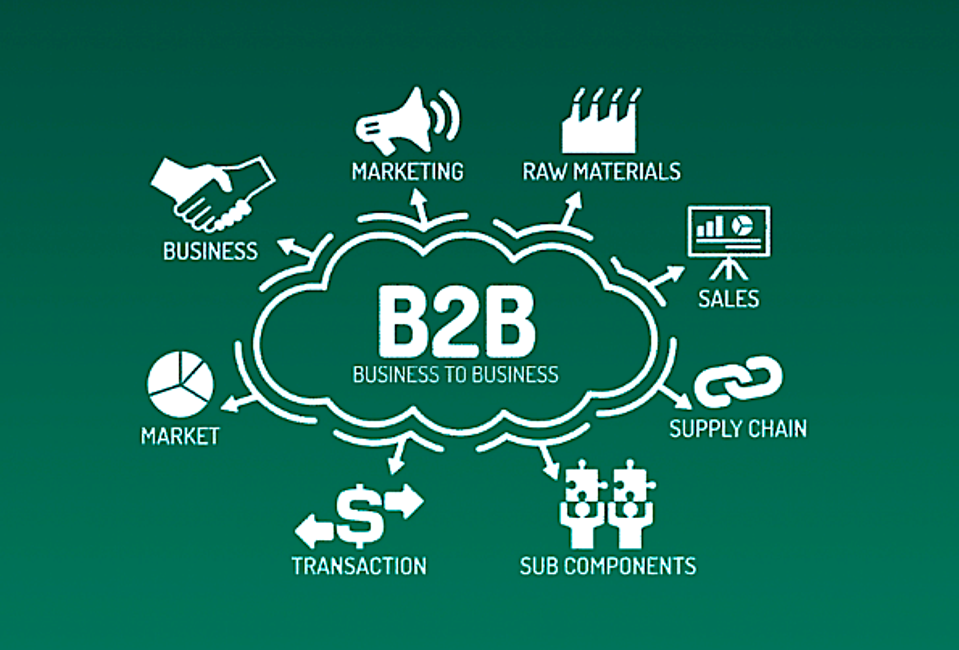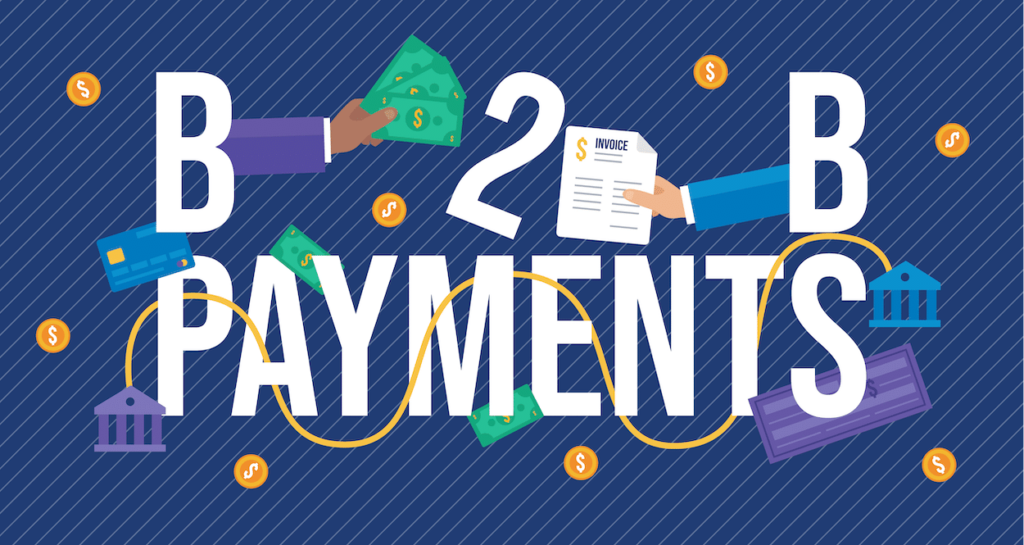NAME : KIM FERNANDEZ
DATE : 21/12/2023
I. Introduction
A. Brief Overview
In the fast-evolving business ecosystem of India, the significance of seamless payment processing[1] cannot be overstated. B2B transactions, characterized by their complexity and volume, require specialized attention to facilitate secure and timely payments.
B. Importance of Efficiency
Efficient payment processing For B2B Connections In India is not just a convenience; it is a strategic imperative for businesses operating in India. The ability to process payments seamlessly enhances operational efficiency and also fosters trust among business partners.
II. Understanding the B2B Landscape in India

A. Growth of B2B Transactions
With the exponential growth of various industries, payment processing for B2B connections in India has become a cornerstone of the Indian economy. Understanding the nuances of this landscape is crucial for businesses looking to thrive in the Indian market.
B. Diverse Industries
From manufacturing to services, the B2B Connections[2] landscape in India spans across diverse sectors. Each industry brings its own unique set of challenges and requirements, necessitating tailored payment solutions.
C. Unique Challenges
Navigating the B2B landscape in India is not without its challenges. Complex regulatory frameworks, diverse payment preferences, and regional variations add layers of complexity to payment processing.
III. The Need for Tailored Payment Solutions
A. Recognizing Complexities
One size does not fit all in the realm of payment processing for B2B connections in India. Understanding the complexities of each transaction and tailoring payment solutions accordingly is paramount to success.
B. Customized Solutions
Indian businesses demand tailored payment solutions that align precisely with their unique needs, emphasizing that flexibility in transaction processing is key to seamlessly adapting to the dynamic nature of B2B connections[3] and ensuring optimal responsiveness to evolving market demands in India.
C. Addressing Regulatory Considerations
Navigating the regulatory landscape is a critical aspect of payment processing for business-to-business connections in India. Businesses must stay informed and compliant to ensure seamless transactions.

IV. Popular Payment Methods
A. Digital Payment Trends
The digital revolution has significantly impacted payment processing for business-to-business connections[4] in India. Embracing digital payment trends is essential for businesses aiming to stay competitive in the Indian market.
B. Electronic Funds Transfer
Electronic funds transfer (EFT) has emerged as a reliable and efficient method for payment processing for B2B[5] connections in India, and its speed, accuracy, and security features make it a preferred and streamlined choice for many businesses conducting transactions in the dynamic Indian market.
C. Role of Mobile Wallets and UPI
The ubiquitous nature of mobile wallets and the Unified Payments Interface (UPI) have transformed the B2B payment landscape. Exploring their role in transactions is crucial for businesses.
V. Streamlining Payment Processes
A. Integration of Payment Gateways
The integration of payment gateways streamlines the transactional process, effectively reducing manual interventions and minimizing potential delays, making it imperative for businesses to prioritize seamless integration to enhance overall operational efficiency.
B. Benefits of Automation
Automation in payment processing brings numerous benefits, including reduced errors and faster transaction times. Implementing automated systems can significantly improve operational efficiency.
C. Reducing Friction in Transactions
Identifying and also addressing points of friction in transactions is essential. Reducing friction enhances the overall experience for businesses involved in B2B transactions.

VI. Security Concerns in B2B Payments
A. Mitigating Risks
Security is a top concern in B2B transactions. Mitigating risks through robust security measures, such as encryption and secure channels, is imperative for building trust.
B. Compliance Standards
Adhering to compliance standards is not just a legal requirement but a trust-building exercise. Businesses must stay vigilant for changes in standards and also ensure ongoing compliance.
C. Importance of Encryption
The pivotal role of encryption in securing B2B transactions cannot be overstated, emphasizing that businesses should prioritize robust encryption protocols to effectively safeguard sensitive financial information throughout the entire transactional process.
VII. Cost-Efficiency Strategies
A. Exploring Cost-Effective Options
In a competitive business environment, exploring cost-effective transaction payment options is crucial. Businesses should diligently evaluate not only transaction fees and charges but also assess the overall transactional framework to optimize costs and enhance financial efficiency.
B. Negotiating Fees
Negotiating transaction fees with payment service providers is a viable and strategic approach. Businesses should leverage their transaction volumes effectively to not only optimize costs but also secure favorable terms, thereby enhancing their overall financial efficiency.
C. Technology for Cost Savings
Embracing technology can lead to significant cost savings in transaction processing. Businesses should invest in innovative solutions that not only offer operational efficiency but also ensure secure and seamless transaction experiences without compromising on data security.
VIII. Case Studies

A. Successful B2B Payment Processing
Examining case studies of successful B2B payment processing in India provides insights into best practices.
Real-life instances furnish businesses with invaluable insights, delivering practical lessons that contribute to their growth and development.
B. Learning from Examples
Learning from both successful and challenging examples helps businesses refine their payment processes. Analyzing cases provides actionable insights for improvement.
C. Implementing Best Practices
Identifying and implementing best practices derived from comprehensive case studies ensures continuous improvement in B2B payment processing. Businesses should consistently strive for excellence in their transactional operations, fostering a commitment to ongoing refinement and optimization.
IX. Future Trends in B2B Payments
A. Innovations Shaping the Future
The B2B payment landscape is evolving rapidly, driven by technological innovations. Understanding and also adopting these innovations is essential for staying ahead.
B. Blockchain’s Impact
Blockchain technology holds immense potential for revolutionizing B2B transactions. Exploring its impact and possibilities is crucial for businesses preparing for the future.
XV. Conclusion
A. Recap of Key Points
In conclusion, the landscape of B2B payments in India demands strategic attention. Businesses that prioritize efficiency, security, and adaptability in their transaction processing not only enhance their operational resilience but are also strategically poised for sustained success in the ever-evolving business landscape.
B. Encouraging Prioritization
Encouraging businesses to prioritize efficient B2B payment processing is crucial for the sustained growth and economic prosperity of India, as streamlined and optimized transactional processes contribute significantly to the overall resilience and competitiveness of the nation’s business ecosystem. As industries evolve, so must the mechanisms that support their financial transactions.
Frequently Asked Questions (FAQs)
- Q: What are the primary challenges in B2B payment processing in India?
- The primary challenges include navigating complex regulatory frameworks, addressing diverse payment preferences, and managing regional variations.
- Q: How can businesses ensure the security of B2B transactions?
- Businesses can ensure security by implementing robust encryption measures, staying compliant with regulatory standards, and also utilizing secure channels.
- Q: What role does technology play in cost-efficient B2B payment processing?
- A: Technology plays a crucial role in reducing costs by automating processes, negotiating fees, and exploring innovative payment solutions.
- Q: Why is trust important in B2B transactions?
- Trust is vital, as it fosters strong business relationships. Transparency, reliability, and effective communication contribute to building trust in B2B transactions.
- Q: How can businesses adapt to the evolving regulatory environment in India?
- Businesses can adapt by staying informed about current regulations, proactively implementing changes, and also maintaining flexibility in their operations.

